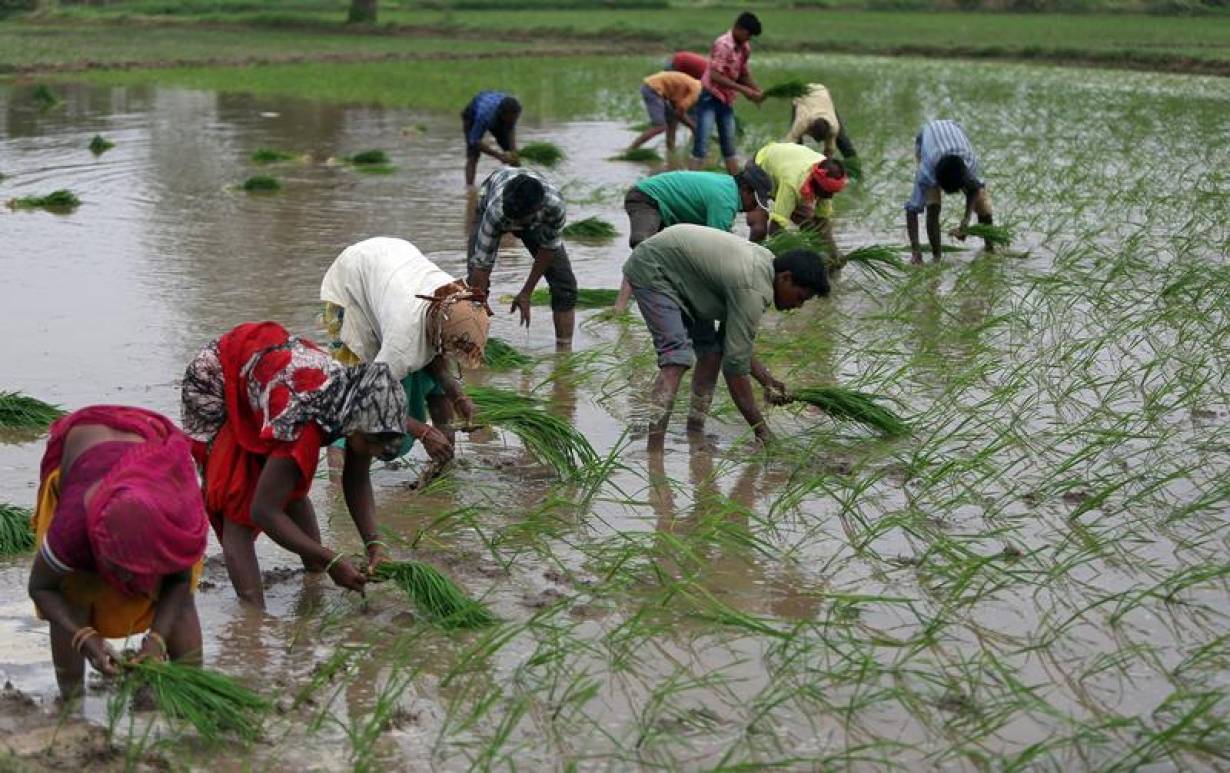The bumper harvest expected this Kharif season will prove how the new laws would help farmers.
Farmers across the country are likely to benefit from the three newly enacted agricultural laws. The Opposition-sponsored protests against the Acts are more to do with politics, than real issues involved with them. The bumper harvest that is expected this Kharif season (June to September) will prove how the new laws would help the farmers.
The protests are more vocal in the northern belt of Punjab, Haryana and some parts of UP etc, while they are either subdued or absent in the southern states, especially in Telangana, Andhra Pradesh and Karnataka, which have seen record output of food grains this season. The DMK-sponsored protests are vociferous in Tamil Nadu which is going to Assembly elections next year. Otherwise, most Tamil Nadu farmers have welcomed the laws.
The ruling TRS, too, is part of the Opposition camp which is resisting the agricultural laws, but the ministers and officials of the department concerned are, off-the-record, admitting that the new Acts might come to the rescue of famers this year, which may see a glut in the market. A glut season results in fall in prices of farm produce, much below the minimum support price (MSP).
The three agricultural Laws–the Farmers Produce, Trade and Commerce (Promotion and Facilitation) Act 2020, the Famers Empowerment Protection (Agreement on Price Assurance and Farm Services) Act 2020 and the Essential Commodities (Amendment) Act 2020–are in fact interlinked and complementary in boosting the incomes of farmers.
The Opposition parties are well aware of Prime Minister Narendra Modi’s slogan for the last few years of doubling farmers’ incomes by 2022 (now 2024). This is possible only in three ways–either increasing the MSP (which is just impossible to double up), or higher productivity (also may not be feasible in short term) or cutting middlemen and allowing free trade to farmers.
The last two are inter-related and can enhance farmers’ incomes to a great extent. The purpose of the three laws is aimed at offering more options to farmers in selling their produce, so that they can get a better price in the market. At present, they are supposed to sell their entire produce at the designated agricultural produce market committees (APMCs) or to the government agencies.
The Food Corporation of India and the state governments’ sponsored civil supplies departments purchase the food grains at MSP. This MSP in most cases is the upper cap of the price instead of the minimum price. And the prices will definitely fall in a glut season this year, as there is more produce than what the APMCs or government agencies can buy and store.
The usual experience on the ground is that in most cases, if there is more produce in the market, these agencies reject most of the food grains on the ground that they are inferior in quality and thus deny farmers the MSP. The main reason for this is the older version of the Essential Commodities Act which imposes limits on stocking of food grains by traders or private people.
Different states have different limits on the food stocks under this old Act under the pretext of preventing hoarding of food grains by greedy traders. These limits were imposed decades ago when the country was facing shortage of food grains and frequent famines. However, now the times have changed and farmers are producing more and seeking better prices for their produce.
The amended law of essential commodities Act still vests the states with powers to fix fresh limits on stocking of food grains, but restricts such powers to emergency-like situations–only when there is acute shortage of food grains. Otherwise, higher stocking of food grains will help traders buy more produce from farmers at competitive prices.
The same thing applies to the newly brought in law by which farmers can sell their produce to anyone and anywhere in the country, of course at a negotiated price. Even now, there are some electronic national agricultural markets (eNAMs) in the country, but farmers are not well versed with digital transactions. Now the open transactions will definitely help them.
There are some doubts over the law that paves way for contract farming. However, these doubts can be sorted out through further discussions and pilot projects in some parts of the country. Farmer associations in Hyderabad are of the view that the laws can be better based on experimentations in some areas. But, as such, the law is not bad, they feel.
This Kharif season, the country witnessed bumper food grains cultivation over 50 lakh hectares–116 lakh ha, as against 106.6 lakh ha in 2019. This season, the country may witness a record 144 million

